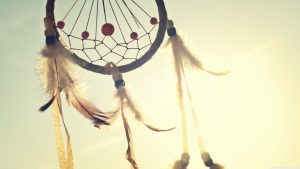Native American tribes have been hit two-fold with the opioid epidemic and coronavirus pandemic.
Across the U.S., from 2006 to 2014, Native Americans were nearly 50 percent more likely to die of an opioid overdose than non-natives, according to published data on the opioid epidemic. Now, natives are struggling with a high rate of overdose coupled with the coronavirus pandemic. Arizona’s White Mountain Apache Tribe and the Navajo Nation have struggled with the highest per capita COVID-19 infection rates while continuing to struggle with opioids.
The 482,000 Native Americans in 38 federally recognized tribes which reside in the state of Oklahoma have filed opioid-related lawsuits. The Oklahoma native death rate from 2006 to 2014 was more than three times higher than the nationwide rate for non-natives, the analysis of federal health data shows, and opioid distributors shipped an average of 57 pills per person per year to Oklahoma during the same timeframe. At least 370 Native Americans in Oklahoma overdosed and died from opioid overdoses.
“We were preyed upon,” Chickasaw Nation Governor Bill Anoatubby said. “It was unconscionable.”

Nationwide, 169 cases have been brought on behalf of 413 federally recognized tribes and these have since been lumped into the consolidated litigation in Cleveland, Ohio. Some attorneys for the cities and counties have offered a nationwide payout ranging from $25 billion to $50 billion for all the plaintiffs, including the tribes involved in the suit. McKesson, Cardinal Health and AmerisourceBergen have offered $18 billion to settle the lawsuits. But, earlier this year, 21 states rejected the offer.
“The opioid crisis devastated Indian country by every measure,” said Lloyd Miller, an attorney representing tribes that include the Muscogee (Creek) Nation in Oklahoma. “So did lung cancer. But when the tobacco litigation was all wrapped up, not a dime was allocated to tribal governments to deal with the devastation that cancer had left behind and the addiction issues. That will not be repeated.”
A spokesperson for AmerisourceBergen, one of the top opioid distributors that shipped millions of pills to the Native Americans, said the company is “committed to mitigating the diversion of drugs without interfering with clinical decisions made by doctors, who interact directly with patients and decide what treatments are most appropriate for their care. We are committed to collaborating with all stakeholders on ways to combat opioid abuse.”
A spokesperson for McKesson, another top distributor, said the company “distributes prescription opioids and other medications in response to orders placed by pharmacies and did not influence the volume of opioids prescribed or consumed in this country…We are deeply concerned by the impact the opioid epidemic is having on families and communities across our nation. We are committed to engaging with all who share our dedication to acting with urgency and working together to end this national crisis.”
“The human and economic toll inflicted on the Cherokee Nation and many other tribes around the country is just truly hard to fathom, and yet it continues and will continue until funds are available to undo some of the harm that has been caused,” said Richard Fields, an attorney representing thirteen tribes.
Now, with one of the highest coronavirus rates in the nation, Native Americans are facing severe devastation.
“The virus is really showing years and years of neglect,” said Jessica Stago, a director of the incubator Change Labs of the tribes. “Everything’s sort of collapsing at this point.”
Sources:
As opioids flooded tribal lands across the U.S., overdose deaths skyrocketed
Tribal Nations Face Most Severe Crisis in Decades as the Coronavirus Closes Casinos


Join the conversation!